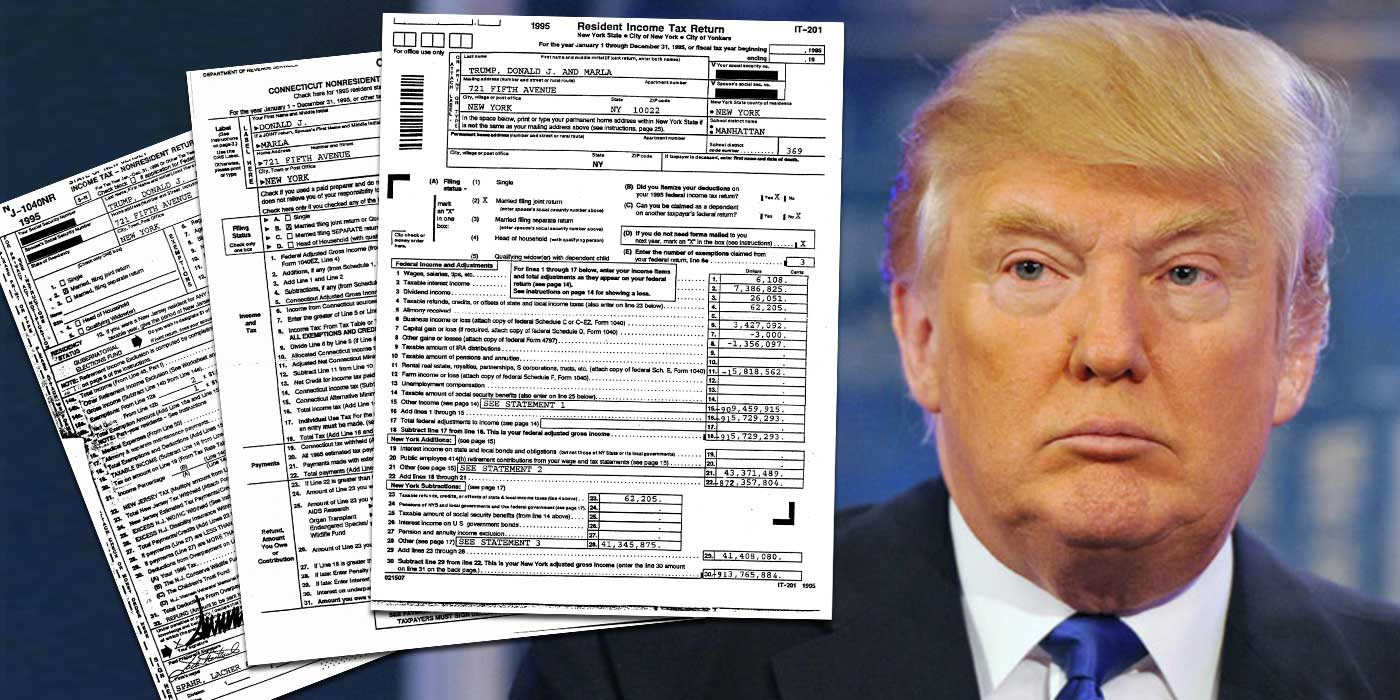Choosing the Best Entity for Your Business
June 12, 2017 by admin
Filed under Business Lifestyle, Business News, Entrepreneurship

Sole proprietorships are the most popular business entity in the U.S., with about 27 million businesses listed as sole proprietorships.
Deciding on the proper structure for a new business in your state– sole proprietor, partnership, limited liability company (LLC) or corporation – will depend on the type of products or services your business will provide, the ownership structure and the financial situation. Consider these factors when deciding on a business ownership structure:
Complexity
If you are starting your business without a lot of capital, you may wish to choose a simple structure, like a sole proprietorship or partnership. More complex corporate structures like corporations and LLCs are more expensive to maintain, and require certain operational formalities that may not be needed if you have a simple business.
Risk
If your business is inherently risky – for example, stock trading or construction – you will probably want a business structure that protects your personal assets from business claims, like a limited liability company (LLC) or corporation.
Taxes
Taxes on business profits for partnerships, LLCs and sole proprietorships are all reported on the personal income tax returns of their owners, who must pay income taxes on all net profits. Corporations pay corporate taxes at special rates on any profit at year-end.
Investment Capital
With a corporate structure, you can sell shares in your business to raise investment capital.
If you are still uncertain which entity would be best for your company, give us a call at (714) 533-2600 and a CPA can help guide you in the right direction.
Save Your Business Miles! It Can Save You Thousands!
June 9, 2017 by admin
Filed under Business Lifestyle, Entrepreneurship, Tax News

If you have to travel for business, you may know that you are allowed to deduct your business miles traveled. Some companies have a system setup for their employees to enter their trips and it will calculate it for them.
However, if you own your own business or you are not compensated by your employer for business miles traveled, then you have to track your miles on your own. When it comes to showing proof for tax deductions, it becomes difficult to show if you did not track every time you traveled for business.
Luckily, with new technology on smartphones an app can be used to track your miles and save them. This will let you know how much you are traveling and how much you would be able to write off when it comes to your taxes. It is more efficient than writing it on paper and will not be lost as easily.
Blue Ocean Strategy-What is the Next Big Idea?
May 25, 2017 by admin
Filed under Business Lifestyle, Business News, Entrepreneurship

For many business owners, their focus is how to compete in their competitive industries. For the restaurant industry there are endless amounts of competitors that provide similar products. For other industries, they might be trying to sell the exact same product.
The question that is then asked is how to differentiate from the competitors? What can be done to become the better option? For many businesses it becomes the customer service or extra amenities offered. While this may separate the business from the below average industry competitors, these types of things should be a given of what to do when trying to run a good business.
Then what can really differentiate your business from competitors?
To help answer this question, consider a blue ocean strategy. This strategy created by W. Chan Kim and Renée Mauborgne states that most businesses operate in red oceans. These red oceans are described as shark infested waters filled with blood from countless competitors fighting for scraps of market share. What they suggest for businesses who want to prosper is to create their own new blue oceans. These oceans are uncontested and creates new demand for a new market.
Why fight a for small share of profits against so many competitors when you could create your own market contesting against no one else?
This may seem hard, but this progressive thinking about your business could be what gets you to where you want your business to go.
3 Ways Technology Can Help Improve Your Business
May 24, 2017 by admin
Filed under Business Lifestyle, Business News, Entrepreneurship

Change can be scary. Technology advances at a much quicker rate than before and it is hard to keep up. Year after year there are new software programs, gadgets and devices that come out that are made to make life easier.
But how does this affect businesses?
These new technological advances can help to improve your business. From simple attachments for smart devices to read accept credit card transactions to tablets that allow customers to enter their information electronically.
Here are 3 ways technology may help your business:
1. Keeping Track of Information
Database systems have taken over the file cabinet in your office. For some industries, a paper trail of information is still needed for security and audit purposes. But for many businesses, a cloud based server can help to keep track bank statements, invoices, bills, and any documents related to the business.
2. Convenient Payment Options
As time goes by, less people are carrying around cash to purchase items. Now there are more options for businesses when it comes to credit card scanners. Any mobile device such as a smartphone or tablet can be used to process transactions. While this comes at the cost of processing fees, it reduces risk of losing customers and helps to keep track of sales.
3. Staying in Touch with Customers
It is a lot easier to keep in touch with customers now by being available on different online platforms. Social media gives businesses the opportunity to exhibit their product or services to attract new business. This has helped many businesses in the food industry advertise their food and start trends that followed by thousands to millions of people.
Not all businesses are the same and some technologies may not suite your type of business. Regardless, it is worth it to try something new to improve your business.
How to Fix Taxes That Were Filed Wrong

If you have received a notice from the IRS, there’s a chance that your taxes may have been filed wrong. This is very common and can be easily fixed.
A CPA can help to translate what the IRS is trying to communicate. Once they have figured that out, they will review the documents needed to file taxes and they will file a 1040-X to amend the faulty taxes and correct them.
Help put your mind at ease by contacting your local CPA.
If you are in the OC or LA area, give us a call at 714-533-2600 to schedule a free consultation today!
WARNING! FAKE IRS Calls!
March 24, 2017 by admin
Filed under Business Lifestyle, Business News, Entrepreneurship, Tax News
WARNING! Tax time also means FAKE IRS calls. Don’t be fooled by these crooks!
The safest way to check if it is the REAL IRS is hang up and go to www.IRS.gov and call the number on that website. The IRS goes through a very formal process of gathering information and would not ask for payment information over the phone or through e-mail. If you get threatened by the callers, the IRS does not do that either.
Again, the safest thing to do is hang up and if you have real concern then call the IRS from the number on their website.
State Personal Property Taxes

State Personal Property Taxes
Do you own a car? A boat? State personal property taxes on cars, boats and other personal property are deductible on Schedule A. The IRS warns that the taxes must be based on value alone and imposed on a yearly basis. For example, most car owners pay a yearly fee for car registration. If part of the fee was based on the car’s value and part was based on its weight, you can deduct the value-based portion of the registration fee.
If you want to know if you qualify for these deductions, give us a call at (714)-533-2600 to schedule a FREE consultation to make sure you are maximizing your deductions.
Business Taxes March 15th Deadline
March 7, 2017 by admin
Filed under Business News, Tax News

Businesses, remember that March 15th is the deadline for 1120, 1120-s, and 1065 tax forms to be filed with the IRS.
This means if you haven’t already started finding someone to help, do that ASAP!
A CPA can either help you make sure you have all you need to file your taxes or file an extension to give you some more time to collect all of your records.
You don’t want to rush and miss any deductions that your business qualifies for. Give us a call at (714) 533-2600 to schedule an appointment to get help with your taxes today!
Tax Tips 2017: Energy Efficient Credit

Energy Efficient Credit
This is your last chance to claim this credit for applying energy efficient equipment to your residential property for 2016. Some examples are solar hot water heaters, solar electric equipment, wind turbines or fuel cells.
What the credit gives you is 30% of the cost for the equipment installed. The amount credited does not have a limit for most types of property.
So if you installed some alternative energy equipment to your property, and want to know if you qualify for this credit, give us a call at (714)-533-2600 to schedule a FREE consultation to make sure you are maximizing your deductions.
Tax Tips 2017: Education Tax Incentives

Education Tax Incentives
College can be stressful. But it can lead to some major tax benefits when it comes to tax season. There are misconceptions of what is deductible when it comes to school expenses. There are three categories to look at for you tax situation.
1. American Opportunity Tax Credit
- This credit gives you $2,500 to deduct from your taxes owed. If it brings the amount you owe down to $0, then you are able to get a refund of 40% of the remainder up to $1,000.
2. The Lifetime Learning Credit
- This credit is similar where you are able to deduct tuition and related expenses up to $2,000 per tax return. Unfortunately, this credit cannot lead to a refund like the previous credit.
3. Deduction for Tuition and Fees
- If for some reason you do not qualify for the credits above, you are always able to deduct up to $4,000 of related expenses each year.
In addition, there are income and other eligibility requirements. Compare your three options
using this chart provided by the IRS https://www.eitc.irs.gov/Other-Refundable-Credits/educompchart
If you want to know if you qualify for these credits, give us a call at (714)-533-2600 to schedule a FREE consultation to make sure you are maximizing your deductions.
Business Tax Help 2017: Preparing for Expiration of Certain Deductions
February 8, 2017 by admin
Filed under Business News, Tax News

Preparing for Expiration of Certain Deductions
Certain tax deductions are allowed for a certain amount of time to help induce an action. Whether it is spending more in one industry or stimulating the economy.
Unfortunately, these temporary deductions, if not renewed, expire and are no longer available for businesses to use.
For the 2016 tax year, the following business deductions will expire if they are not renewed:
- Film and TV production expense provisions
- Energy efficient commercial building deductions
- Mine safety equipment expense election
- Additional depreciation for bio fuel plant property
So if your business uses any of the stated deductions, it is best to prepare differently for 2017 if it does indeed expire. There may be new deductions that may benefit your company and right now is the best time to look into that matter.
To check what would be best for your business, give us a call at (714) 533-2600 to schedule a FREE consultation to make sure you are getting every deduction you deserve.
Tax Tips 2017: Student Loan Debt

Student Loan Debt
School loans can total up to be a large sum of money. In addition to that there is interest that must be paid as well. Luckily, you are able to write of the amount of interest you paid that year on your taxes up to $2,500.
This deduction can be taken not only if you make the payments, but if someone else makes the payments for you as well. The IRS sees it as you are receiving money from them and then in turn making the payments for the loan.
If you want to know if you qualify for these deductions, give us a call at (714)-533-2600 to schedule a FREE consultation to make sure you are maximizing your deductions.
Business Tax Help 2017: Vehicles for Business Use
February 6, 2017 by admin
Filed under Business News, Tax News

Business Use of Vehicles
When it comes to using a vehicle for business, there are two things you should keep track of: mileage and depreciation.
For 2016 the standard mileage rate is 54 cents per mile. This means you should keep track of your business miles to be able to write them off for your taxes. Some examples of business miles are traveling from one office to the other or driving to a client site from the office.
Depreciation should also be tracked because the value of a car drops significantly just after leaving the dealership. Luckily, this drop in value can be deducted without having to spend additional money in order to get a deduction. The IRS has separate deduction caps for different types of care. Here are two popular types:
Passenger Automobiles
- First Tax Year- $3,160 (or $11,160 if bonus depreciation is claimed)
- Second Tax Year- $5,100
- Third Tax Year- $3,050
- Each Succeeding year- $1,875
Trucks and Vans
- First Tax Year- $3,560 (or $11,560 if bonus depreciation is claimed)
- Second Tax Year- $5,700
- Third Tax Year- $3,350
- Each Succeeding year- $2,075
To see how your vehicle use can qualify, give us a call at (714) 533-2600 to schedule a FREE consultation to make sure you are getting every deduction you deserve.
Tax Tips 2017: Child and Dependent Care Credit

Child and Dependent Care Credit
Looking for someone to watch your children can be difficult while you are working or looking for work. That is why the IRS has a tax credit that may help cut your tax bill quicker than a simple deduction. This credit applies also for those who live with an elderly parent or disabled spouse whose care must be paid for while you work.
If you entered your child into a summer day-camp in order for you to be able to work, then the costs can be claimed for the credit. The credit limit for one qualifying individual is $3,000 and for two or more qualifying individuals it is $6,000.
If you want to know if you qualify for these deductions, give us a call at (714)-533-2600 to schedule a FREE consultation to make sure you are maximizing your deductions.
Business Tax Help 2017: Business Property and Depreciation
February 3, 2017 by admin
Filed under Business News, Entrepreneurship, Tax News

Business Tax Help 2017
The goal for doing taxes for your business is simple; maximize your tax benefits to minimize the amount of taxes you have to pay. But with tax laws always changing, how can you ensure that your tax plan is still the best option?
That is why we here at Sonny and Company CPA will be keeping you up to date with some new tax tips and strategies that may help your business save money on taxes.
Business Property and Depreciation
Whether it is a new computer or a new forklift, business property helps you business operate but can also help you save on your business taxes
The introduction of bonus depreciation has helped many business owners deduct a larger percentage of the depreciation expense of their business property. Businesses are allowed to buy new property and in that first year of putting it into use are given a 50% bonus depreciation. This type of deduction is very helpful because it is an extra expense that is allowed to be taken without having to spend any money.
However, some companies prefer or can only afford to buy second hand property. For these cases, they are not allowed to take the bonus depreciation offer because it only applies to brand new, first time use property.
Luckily, these types of businesses can choose to elect Code Sec. 179 expensing. This tax code allows the taxpayer to deduct costs related to property and be expensed instead of marking it as an asset with depreciation. This code applies not only brand new property, but secondhand property as well. These deductions are allowed up to $500,00, which is double the amount from last year.
To check which one would be best for your business, give us a call at (714) 533-2600 to schedule a FREE consultation to make sure you are getting every deduction you deserve.
Tax Tips 2017: Moving Expenses

Moving Expenses
Moving into a new home to take a new job that requires you to change cities or states can be a lot to handle. There are many things that you have to take and it can be hard to keep track of it all. Something you should not forget is that all the expenses for moving into your new home can be deducted without having to itemize your return.
In order to see if you qualify, the IRS has some tests:
- Distance: The new place of work must be at least 50 miles farther than your former home was from the main workplace of your old job. If it is your first job, or if you have been unemployed and are return to work, the new workplace must be at least 50 miles from your home.
- Time Test: As an employee, you must work full-time for at least 39 weeks during the first 12 months after you arrive at your new job. As a self-employed worker, you must work 39 weeks during the first 12 months and 78 weeks during the first 24 months after you arrive.
After you pass these tests, then you are allowed to deduct 19 cents per mile if you use your own vehicle to move. You can also deduct the costs of moving your belongings as well as any lodging expenses on your way to your new home.
If you want to know if you qualify for these deductions, give us a call at (714)-533-2600 to schedule a free consultation to make sure you are maximizing your deductions.
Tax Tips 2017: Job Hunting Expenses
Job Hunting Expenses
Finding a job can be tough, but what you might forget is that hunting for a job has expenses. If you are looking for a job in your field and have expenses while on the hunt, then those expenses can be deducted in Schedule A under job expenses and certain miscellaneous deductions on your 1040 taxes. This applies regardless if you gained employment or not.
Some examples of what the IRS allows as job hunting expenses are:
- Resumes
- Placement agency fee
- Travel to look for a new job
If you want to know if you qualify for these deductions, give us a call at (714)-533-2600 to schedule a free consultation to make sure you are maximizing your deductions.
Employers Beware! IRS warns of W-2 Scam
January 27, 2017 by admin
Filed under Business News, Tax News

Business owners beware! Every year there are people that claim to be part of the IRS to scare you into giving them information. This year, there is a payroll scam where they are sending out e-mails where they are asking for W-2 information.
Remember, on these W-2’s there is a lot of sensitive information that could hurt your employees and your company.
Although the e-mails seem legitimate, do not send any information. Some examples of these scam e-mails are:
- Kindly send me the individual 2016 W-2 (PDF) and earnings summary of all W-2 of our company staff for a quick review.
- Can you send me the updated list of employees with full details (Name, Social Security Number, Date of Birth, Home Address, Salary).
- I want you to send me the list of W-2 copy of employees wage and tax statement for 2016, i need them in PDF file format, you can send it as an attachment. Kindly prepare the lists and email them to me asap.
The IRS goes through a very formal process and does not request documents with such short notice. If you are still unsure if it is a scam or not, give them a call directly to verify if it was actually them.
Visit the site below to see what the IRS stated about this scam and for more information.
Tax Tips 2017: Job Expenses

Job Expenses
Everyone wants to deduct job related business expenses, but what qualifies? There are some common beliefs of what can be and can’t be deducted. For example, you cannot write off your daily lunches or commute to work. You can however write any travel miles that you drive for business at 54 cents per mile.
Some job expenses that the IRS will allow you to deduct if they are unreimbursed by your employer are:
- Uniforms
- Professional Dues
- Protective Gear
- Safety Equipment
- Small Tools
- Professional Journal Subscriptions
- Travel Between Offices
Of these expenses, only the amount that exceeds 2% of your adjusted gross income will be counted in your Schedule A itemized deductions.
If you want to know if you qualify for these deductions, give us a call at (714)-533-2600 to schedule a free consultation to make sure you are maximizing your deductions.
Tax Tips 2017: Charitable Donations

Charitable Donations
One easy way to reduce your tax liability and give back to your community is by making donations of money, goods and time. Keeping track of the cash and goods you have given to charity is easy to remember, but those are not the only things you should keep track of.
If you volunteer your time at your local soup kitchen or food bank, you are not able to deduct any amount for the time you spent there. However, you deduct the cost of getting there and back. For your kind acts to help others, the IRS will allow you to deduct 14 cents per mile as well as any parking or toll fees.
Making food for a charitable cause also qualifies as a deduction. Similarly to the previous example, the time is deductible but the cost of the ingredients are. Keeping receipts is important to be able to write off the cost. If the costs are over $250, then there needs to be verification from the charity of the contribution.
Overall, the IRS allows the following travel expenses,
- Air, rail and bus fares
- Out of Pocket expenses for a car
- Taxi fares
- Lodging
- Meals
The IRS will only allow these deductions if you are on duty in a genuine and substantial sense throughout the trip.
If you want to know if you qualify for these deductions, give us a call at (714)-533-2600 to schedule a free consultation to make sure you are maximizing your deductions.
Tax Tips 2017: Deductible Medical Expenses

Medical Expenses
The doctor’s office may be a scary place, but when you can get a tax deduction for the visit, maybe it’s not so bad.
For 2016, the IRS will allow you to itemize the miles you drove for medical reason at 19 cents per mile.
That is additional to the amount of medical and dental expenses that are than 10% of your adjusted gross income that are deducted in Schedule A.
If you stuck in the hospital and had to pay for meals or lodging, the IRS will also allow you deduct these expenses from a hospital or similar institution if the principal reason was to receive medical care.
If you want to know if you qualify for these deductions, give us a call at (714)-533-2600 to schedule a FREE consultation to make sure you are maximizing your deductions.
Tax Tips 2017: Itemized Deductions vs Standard Deduction

Tax season is upon us. There are many generally known tax deductions and strategies, but there may be something that you are missing.
We here at Sonny & Company CPA will be putting out some tax tips to help you either reduce your tax liability or maximize your refund.
Itemize or Not?
Itemizing your deductions is best whenever your deductions are greater than the standard deduction. For example, many homeowners choose to itemize because mortgage-interest payments along with local property taxes and uninsured medical expenses often add to be more than the standard deduction.
The IRS has said the standard deductions for the tax year of 2016 is as follows:
- $9,300 for heads of household
- $6,300 for singles and married persons filing separate
- $12,600 for married filing jointly
So, if you believe that you qualify for deductions that are greater than the standard deduction you will receive, then make sure you itemize everything you can to lower your tax bill.
If you do not believe you have enough deductions to surpass the standard deduction, then do not file a tax return to itemize deductions. It is more expensive to itemize deductions and you will save more by doing a simple return.
For those who do itemize, beware that deductions are limited are even phased out if your adjusted gross income for 2016 exceeds the following:
- Single: $259,400
- Married filing jointly or qualifying surviving spouse: $311,300
- Married filing separate: $155,650
- Head of household: $285,350
If you are still unsure if you should itemize or not, stay tuned for more tips or give us a call at (714)-533-2600 to schedule a free consultation to ensure you are making the right decision.
Attention Employers: New W-2 and 1099 Filing Deadline

Employers, beware! If you have a business that has employees or independent contractors, be aware of the new deadline enforced by the IRS.
Usually employers had until the end of February to submit their W-2 copies to the IRS, but in an effort to detect and prevent refund fraud, the deadline has now been moved to January 31st.
For businesses that give 1099-MISC forms, the same deadline applies for these non-employee compensation forms such as payments to independent contractors.
Extensions are still available but with new rules. Only one 30-day extension can be requested and it not automatic. If an extension is needed, then a Form 8809 Application for Extension of Time to File Information Returns must be completed before January 31st.
This new deadline will help the IRS verify the legitimacy of tax returns and properly issue refunds to taxpayers eligible to receive them. As a benefit, refunds will be to released more quickly in many instances.
However, refunds for taxpayers who are claiming either the Earned Income Tax Credit (EITC) or Additional Child Tax Credit (ACTC), must wait until at least February 15th to receive their refund.
Gambling: How to Report Winnings for Taxes

While hitting the jackpot in a slot machine or getting a flush in poker, taxpayers must remember that even winnings from gambling are taxed. Gamblers will receive a W-2G to know the total of their winnings for the year. Although this process for taxes seems straightforward, there is more to consider when doing taxes for gambling activities.
- Can losses be deducted from the winnings?
- Are there different rules for different states?
- Is there a difference if the gambler is a professional?
First off, a taxpayer’s gross income includes all earnings. This means that whether the gambling winnings are $5 or $500,00, the winnings are taxable.
But there is a good news. Losses from gambling can be deducted to the extent of the gains. For amateur gamblers this deduction is made on Schedule A for Itemized Deductions. However, nonresidents are not allowed to deduct the losses from gambling unless they are directly connected to a trade or business.
For residents of Connecticut, Illinois, Indiana, Kansas, Massachusetts, Michigan, North Carolina, Ohio, Rhode Island, West Virginia, and Wisconsin, beware. These states do not allow amateur gamblers to deduct their losses from their winnings. For example, if an amateur gambler in Ohio wins $50,000 and loses $50,000, they may not deduct their losses even though they technically broke even.
This is not the case if the taxpayer is a professional gambler such as a professional poker player. They may deduct gambling losses from their state income taxes but they are aggressively challenged for their status as professional.
So remember to consider the tax implications for gambling winnings and losses and plan accordingly based on your gambling status and the state you live in.
How to Find a “Soulmate” er… Good Business Partner
January 13, 2017 by admin
Filed under Entrepreneurship

If you have read our older blogs, we made a post about how working with your spouse as a business partner can be very effective if you treaded carefully. Now, in case you do not have a spouse, we will talk about how to find a business partner with the right qualities.
If you believe that you as a business person can work better alone, we have an example that may change your mind. Written from lesseverything.com, they had an example of a man named Allan who had been running his own consultant business just fine alone. He had a father who was a successful entrepreneur for decades that told him not get a business partner. Eventually, Allan met Steve during the Summer 2006. Steve could take Allan’s ideas and instantly be able to tell him why it was bad and how to make it better. Allan quickly realized that having Steve around would make him better at what he does. Additionally, he also realized that Steve could also plan and execute business better than Allan could. Allan was ideally the idea factory while Steve improved upon those ideas. Now today, they together have made an even more successful business.
Keep in mind that a business partnership is like a marriage without the sexual part. Every business decision that Allan makes will affect Steve, and every business decision that Steve makes will affect Allan. If Steve needs to spend more for the business, this will put a strain on Allan, which will affect the business entirely. In a way, it is like having your spouse spend tons of money on products that are unnecessary; you would have to keep track of their spending in order to use that budget for other important things.
How do you make a business partnership work out? Well, it’s basically the same thing as a marriage:
Have mutual respect for each other: You must always have respect for the things that both parties do, and they must collaborate and work together without any criticizing or fighting. It is a partnership and marriage, not a war between two partners.
When you have a partnership, you treat each other as if you are equals. There is no such thing as the dominator in the relationship or the captain. When you make decisions, make it together with a compromise if one party does not agree with certain factors. This would be another way to show respect for one another.
Another thing that is considered to be rare, but if you have it, do not lose it. This would be having a partner who has skills that are complementary to your skills. In lesseverything.com’s case, Allan is a designer and Steve is a developer. When you have a person who designs and another who develops those designs while improving them through the process, you can say that it works like “peas and carrots.”
There are times when you and your business partner are best friends, and sometimes you both are not, but one thing for sure us that they are always aware of how the other party is doing, and they are usually willing to help that person out. In many cases, they are trying to understand each other’s stresses and the workload.
Here are two qualities that your partner should have:
– A real friend, spouse, or partners are willing to point out your flaws and tell you some of things that you are lacking. They are saying this because they want you to grow, they are not looking disrespect you or criticize you. And you are willing to take that in because you value their opinion.
– They do not judge you. When you need help with a broken car, moving, or if some kind of emergency happens, who would you call? If it is 2:00am and you are unable to drive back home, who is going to drive 50 miles to help you out? If that person is willing to do that for you, consider that person a true friend. This is how your business partner should be.
Inspiring quote: “Allan says…
“I’ve always had plenty of friends, but there’s only a small circle of those that I would call ‘close friends.’ My Grandfather would tell me that before the Great Depression, he had money, a bunch of friends and a Model-T car. When the hard times struck, his family lost everything–including the friends. They only wanted to be around him when he had possessions.”
***ARTICLE BASED ON LESSEVERYTHING.COM***
How to Avoid Tax Fraud, Advice from Scammers Themselves
January 11, 2017 by admin
Filed under Business Lifestyle

As a company who follows the three basic principles of Honesty, Integrity, and Innovation, we do not condone Tax Fraud, and we certainly will never perform such acts for anyone who requests such atrocity. So what is Tax Fraud? According to tax whistleblower, it is a general term, which can trigger many different laws found in Title 26 and Title 18 of the United States Code. It is basically a taxpayer’s intent to defraud the government by not paying taxes that they know are lawfully due.
Krebsonsecurity.com has talked about one of the successful scammers who explained how he was able to file a tax fraud by using prepaid debit cards. This kind of method has been used for several years because it has been a indispensible tool of tax fraudsters. The scammer named Peleus reported that he was able to bypass the IRS Fraud Filters, and was able to find great success at the state level. The important thing was, according to Peleus was having a bogus refund sent to a unique prepaid debit card account for each filing. In March 12, 2015, Utah State Tax Commission Chairman John Valentine has reported to the U.S Senate Finance Committee that suspicions returns has been about the direct deposit information changed from the previous year’s ban account to prepaid debit cards.
The problem with transferring funds to prepaid debit cards is that they cannot be traced or recovered, which is a perfect way to commit tax fraud. It seems that prepaid debit cards are most preferable to fraudsters because the identity thief doesn’t have to interact with banks, credit unions or checking cashing stores that may become suspicious when one person starts bringing in multiple tax refund checks to be cashed or deposited.
HOW TO AVOID THIS
– Try to file your taxes as early as possible. However, if the state taxes have been “filed” already, then immediately report this issue with the state revenue agency.
– Have a CPA or Accountant do it for you. Accountants are born to study all of the complications of the tax law, and they have to make sure their clients are safe. This is a good opportunity as there are many fraudsters out there who want to file a fake tax return. Accountants usually charge a fair price for their services, especially in Orange County.
– Consider placing a fraud alert freeze on your file at the major credit companies. If fraudsters have enough personal information to file a fraudulent tax return under your name, then they can use that data to commit other crimes. Placing a fraud alert on your credit file every 90 days is the cheapest way since it is free.
Be sure to make sure your personal information is safe from crooks, and also use this information as a way to help you understand how fraudsters operate so you can use this information to help your sound more legitimate when you report a tax fraud claim.
***ARTICLE BASED ON TAX FRAUD ADVICE, STRAIGHT FROM THE SCAMMERS from krebsonsecurity.com ***
Overview of Trump’s Upcoming Tax Plan (In Case You Don’t Already Know)

As January 20th comes closer to President Elect Trump taking over office, America must prepare for the new changes that he will make in the country. The changes we would like to discuss is the US Federal income tax system that he will implement. In this case, Trump has promised that he will make the tax system easy to understand for individuals.
According to Jane Beule, owner of Griffin Black Financial Services, there is going to be a simplified tax bracket for Personal Income Taxes. Here is what we can expect to see:
“First, expect a simplification of the tax rate structure along with an elimination of the highest personal income tax brackets along the following lines:”
Current (Marred Filing Jointly)
10% bracket: $0 to $18,550
15% bracket: $18,550 to $75,300
25% bracket: $75,300 to $151,900
28% bracket: $151,900 to $231,450
33% bracket: $231,450 to $413,350
35% bracket: $413,350 to $466,950
39.6% bracket: $466,950 or more
Proposed (Married Filing Jointly)
12% bracket: $0 to $75,000
25% bracket: $75,001 to $224,999
33% bracket: $225,000 or more
The 3.8% Obamacare tax on the lesser of net investment income or the amount by which your AGI exceeds $200,000 would also be eliminated under both the Trump and the House plans.
In addition, current tax proposals seek to simplify the calculation of net taxable income by:
- Substantially increasing the standard deduction (from $12,600 to $30,000 for joint filers; $6,300 to $15,000 for singles);
- Eliminating the personal exemption;
- Eliminating all itemized deductions other than for mortgage interest and charitable deductions;
- Capping itemized deductions at $200,000 (joint) or $100,000 (single); and
- Scrapping the alternative minimum tax altogether.
What does this all mean?
With these new proposals in mind, low-income taxpayers earning less than $18,500 would move from a 10% Bracket to a 12% tax bracket and couples earning between $225,000 to $231,450 will pay higher tax because they would be placed in the 33% tax bracket. However, if there is a larger deduction for a “large percentage of these taxpayers would mean a larger proportion of their income would be excluded altogether from taxation than is currently the case, thus maintaining or even reducing their overall effective tax rate”
“Most higher-income taxpayers would see their federal taxes reduced, particularly those who earn more than $466,950, who would see their marginal bracket fall from 39.6% to 33%. Eliminating the 3.8% tax would provide tax relief for all taxpayers earning more than $200,000.
All taxpayers would benefit from not having to deal with the complexities of the Alternative Minimum Tax.”
** Article Based on “How to Prepare for Trump’s Tax Plan Now” written by Jane Beule of Griffin Black **
Mark Cuban’s Success Story
January 4, 2017 by admin
Filed under Entrepreneurship

Mark Cuban, the owner of the Dallas Mavericks, is currently worth an estimated $3 billion. Although most of his money mainly came from 2 transactions during the dot com era, he was a natural born leader who had the expertise of an experienced entrepreneur from a young age.
During the 1980’s, he was majoring in Business Administration at Indiana University and was saving up money to buy himself a bar. One of the professors in his school considered this action very brave and risky because he has never seen a student or an MBA student own a business while attending school. Eventually, Mark was able to turn his bar business into a successful student bar in the area. Mark opened up a new business after he completed school called MicroSolutions, a computer company that he sold after 7 years to another company called CompuServe in 1990 for $6 million. He used his money to retire for the next 5 years to travel around the world and partied around.
After Mark’s retirement during the 1990s, he began listening to his former university’s basketball team games. He began another new business with a partner called AudioNet, which eventually spread across hundreds of sports channels and radio programs, as well as product launches and fashion shows. Eventually AudioNet had to rename itself to Broadcast.com and was one of the first internet radio sites in the world. It was then later bought out by Yahoo and Mark took in $1.7 billion in Yahoo stock.
Once the 2000s came out, Mark Cuban became the majority owner of the Dallas Mavericks and bought them for $280 million. The team was considered one of the worst in the league, but because of Mark’s management, he had turned the team into a $1.15 billion team.
Mark Cuban is considered one of the best examples of a business entrepreneur who dedicates himself to becoming a self-made man. Additionally, from being an owner of a media company and a basketball team, he also invests in businesses and product lines.
ARTICLE WRITTEN BY VANESSA PAGE – INVESTOPEDIA.COM
Spend More Time With Your Family & Friends while saving money for the Holidays
December 23, 2016 by admin
Filed under Business News

It’s that time of the year again where many of us celebrate the holidays with cheer, parties, gifts, and many other goods to enjoy before they hit reality again. But guess what, you know what else comes after those parties, gifts, and goods? That’s right! A hefty bill in the New Year!
You’re probably thinking, “Oh thanks a lot Sonny, I definitely needed that reassurance…” Well hold on there, we’re not here to deliver bad news to you! We have some great money saving tips that will help you save money so it’ll at least soften up that bill in January.
According to moneyadviceservice.org, the average Christmas spent per household is around $615, which includes food, presents, travel, and decorations. Based on moneyadviceservice.org, they have compiled a list of steps on how you can save money for the Holidays:
Step 1 – Set a Budget – Making a list of family and friends you will be buying for will help you organize how much you will spend on each person. We recommend using a Microsoft Excel spreadsheet so you can calculate how much you have to spend, and include tax rates as well. Additionally, if you are hosting dinner then think about how many people will be coming over and how much you will be spending on what you will be offering in the party to your guests.
Step 2 – Work out how much to save each month – Make a commitment to save a portion of your income or cash flow every month. If you commit to saving a certain amount every month consistently, you will notice that you have a lot more money than you think without even realizing it. It really feels like you hit a jackpot in a slot machine game!
Step 3 – Start some new Christmas traditions – Perhaps starting some new Christmas traditions where the whole family or friends can join in with while saving along the way will help save money, since they are going to pitch in the expenses. A good tip on saving, instead of writing out gift cards to friends and family, you can send e-gift cards through email. We are living in the digital age, and most people are heavily reliant on digital devices and phones these days. Not only will you save money on buying gift cards, you will also save a lot of time, in which you can use to spend that extra time with those who matter to you most. If you are buying gifts for friends, you can set a limit on how much you spend, or even better, you can use the extra time you have (Assuming you use e-cards) to make a handmade present, nobody loves a handmade present more than a purchased gift.
Step 4 – Decide where to put your Christmas Savings – For those who want to save smaller amounts of money, you can simple place your savings in a coin jar. However, be sure to transfer it into a savings account once it gets full. Setting up a bank account that is used for instant savings would help as well.
Well, that’s it folks! Sonny & Company CPA wishes you Happy Holidays, and we hope you are all able to enjoy the end of the year with your loved ones! We hope these tips will help you. Save, party, and enjoy like there’s no tomorrow! Happy New Year!
Happy Holidays! Year-End Tax Saving Tips to Spend or Save for the Holidays

It looks like the end of the year is coming, and we are pretty sure many of you are still frantically shopping for gifts for your family and friends. Do you ever wish you had more money to spend for your friends and family, but just could not figure out how you can save more money?
Well have no fear! We are an Orange County CPA firm who will be here to provide tips on how you can cut tax spending to save or have more money to spend for you your loved ones.
Capital Gains and Dividends. The tax rate on qualified capital gains (net-long term gains) and dividends range from 0 – 20%, depending on the individuals income tax bracket.
STRATEGY: Spikes in income, whether capital gain or other income, may push gains into either the 39.6 percent bracket for short-term gain or the 20% capital gains bracket. Spending the recognition of certain income between 2016 and 2017 may help minimize the total tax paid for the 2016 and 2017 tax years.
State and local sales tax deduction. The PATH Act made permanent the itemized deduction for state and local general sales taxes. That deduction may be taken in lieu of state and local income taxes when itemizing deductions.
STRATEGY: Generally IRS tables based upon federal income levels and a taxpayer’s number of departments are used for this optimal deduction. Taxpayers who wish to claim more than the table amounts must provide adequate substantiation.
Tuition and fees deduction. The PATH Act extended the above-the-line deduction for qualified tuition and related expenses for two years, for expenses paid before January 1, 2017. The maximum amount of the tuition and fees deduction is $4,000 for an individual whose AGI (Adjusted Gross Income) for the tax year does not exceed $65,000 ($130,000 in the case of a joint return), or $2000 for other individuals who’s AGI does not exceed $80,000 ($160,000 in the case of a joint return)
STRATEGY: Payments by year-end 2016 may be particularly critical to taking this deduction. There is some – but not unlimited – flexibility regarding the deductibility of tuition paid before a semester begins. As with the AOTC, the deduction is allowed for expenses paid during a tax year, in connection with an academic term beginning during the year or the first three months of the next year.
Nonbusiness energy property credit. The PATH Act extended the nonrefundable non business energy property credit allowed to individuals, making it available or qualified energy improvements and property placed in service before January 1, 2017.
STRATEGY: Several overall limitations apply. A credit amount for qualified energy efficiency improvements equals 10 percent of the amount paid or incurred during the tax year and 100% of the amount paid or incurred for qualified energy property during the tax year. The maximum credit amount for qualified energy property varies depending on the type of property, further all nonbusiness energy property carries a $500 maximum lifetime credit cap.
Individual Shared Responsibility Payments. For 2016, the individual shared responsibility payment is the greater of 2.5% of house-hold income that is above the tax return filing threshold for the individual’s filing status or the individual’s flat dollar amount, which is $695 per adult and 347.50 per child, limited to a family maximum of $2,085, but capped at the cost of the national average premium for a bronze level health plan available through the Marketplace in 2016.
STRATEGY: Open enrollment for coverage through the Health Insurance Marketplace for 2016 has closed. However, some qualifying life events may make an individual eligible for non-filing season special enrollment.
Medical expense deduction. Taxpayers who itemized deductions (for regular tax purposes) may claim a deduction for qualified reimbursed medical expenses to the extent those expenses exceed 10% of adjusted gross income (AGI), unless the tax payer falls within an age-based exception. Taxpayers (or their spouses) who are aged 65 or older before the close of the tax year, may apply the old 7.5% threshold for tax years but only through 2016.
STRATEGY: Tax payers who are age 65 or older may consider accelerating medical costs into 2016 if they want to itemize deductions since the AGI floor for deductible expense rise from 7.5% to 10% in 2017. For deductions by cash-basis taxpayers in general, including for purposes of the medical expense deduction, a deduction is permitted only in the year in which payment for services rendered is actually made.





